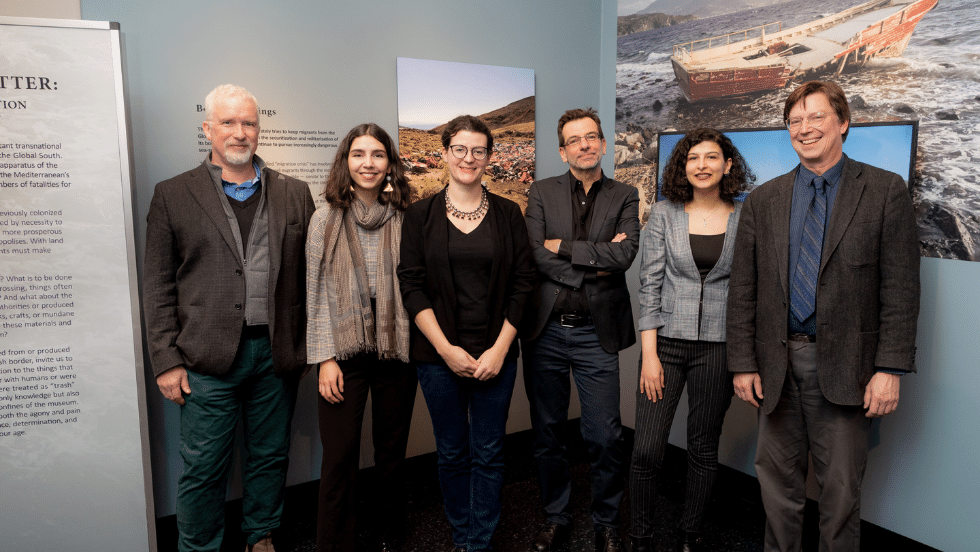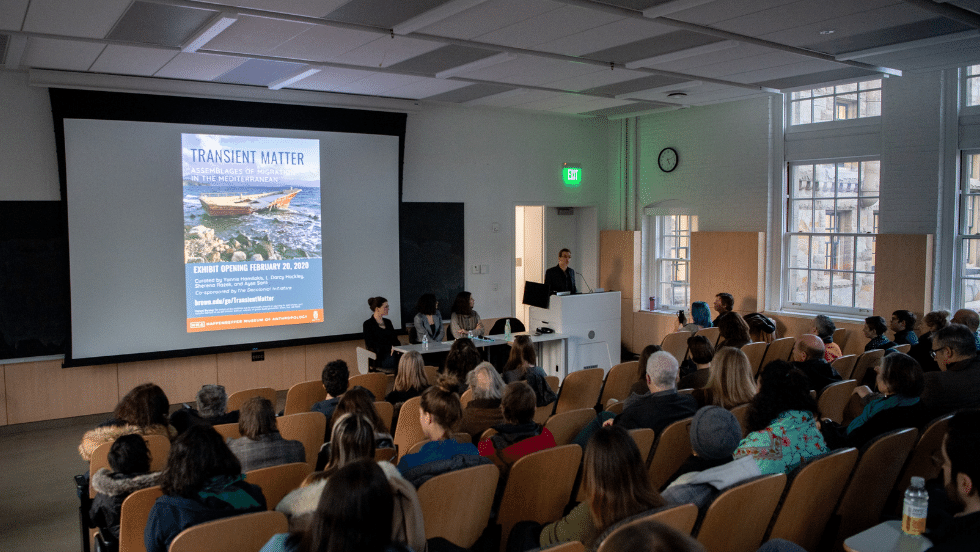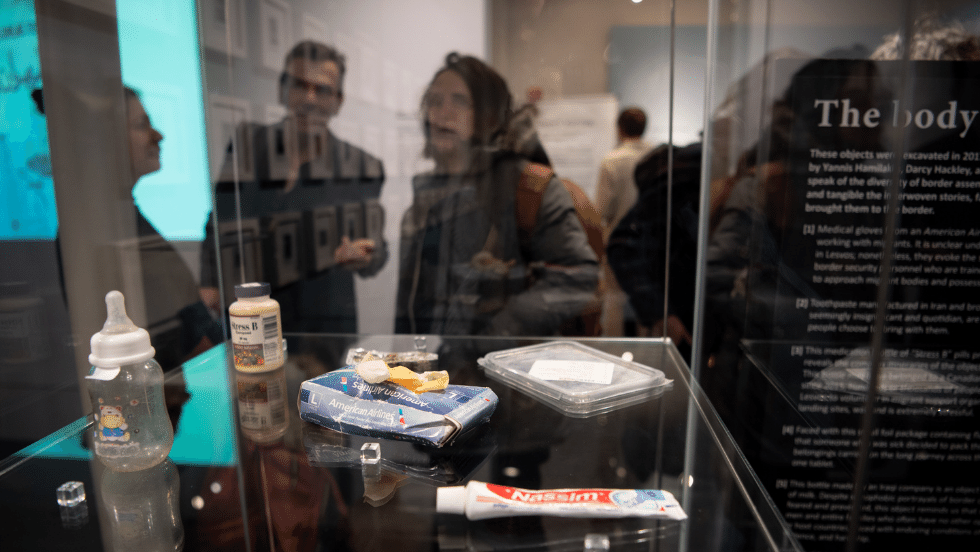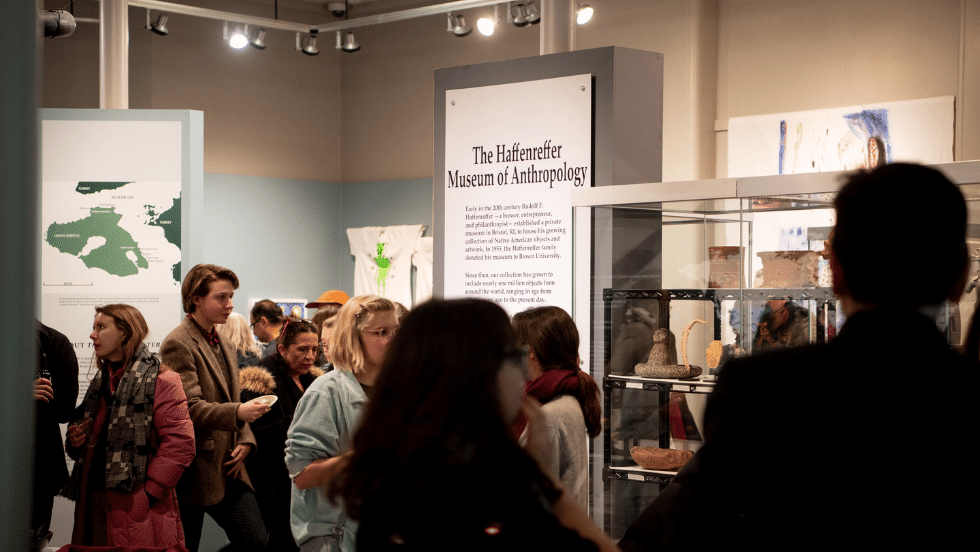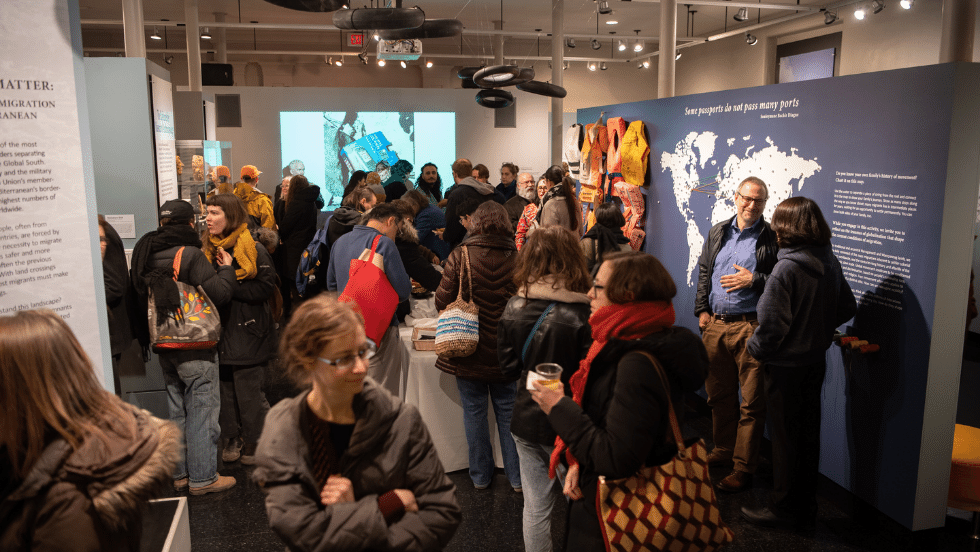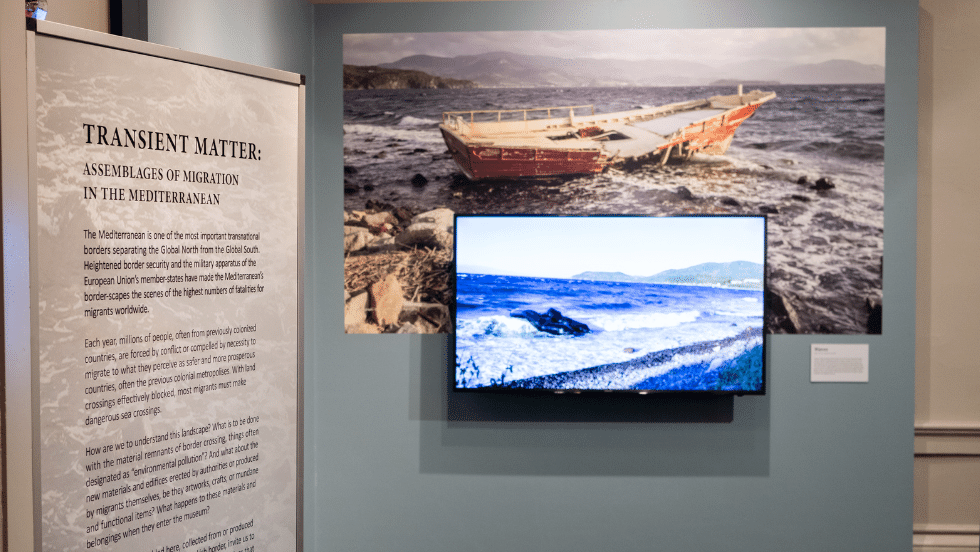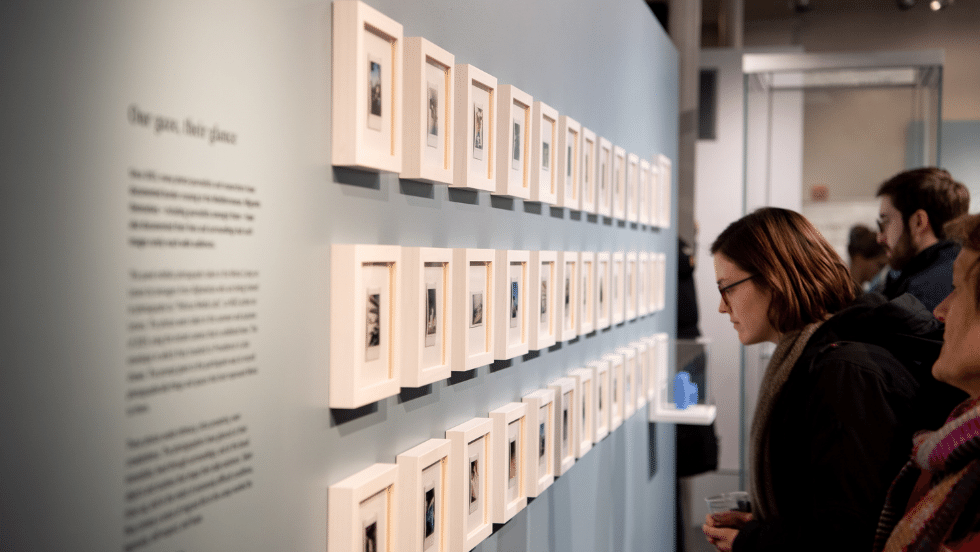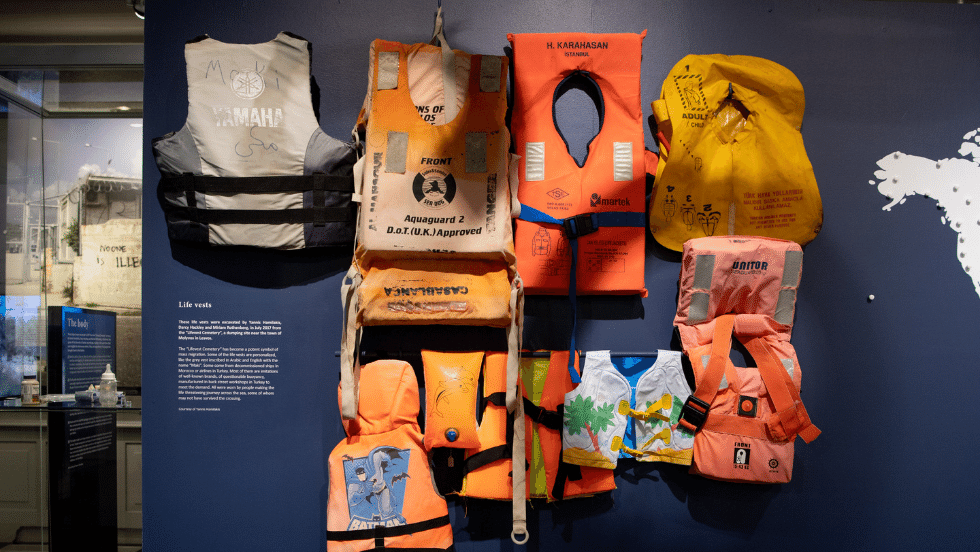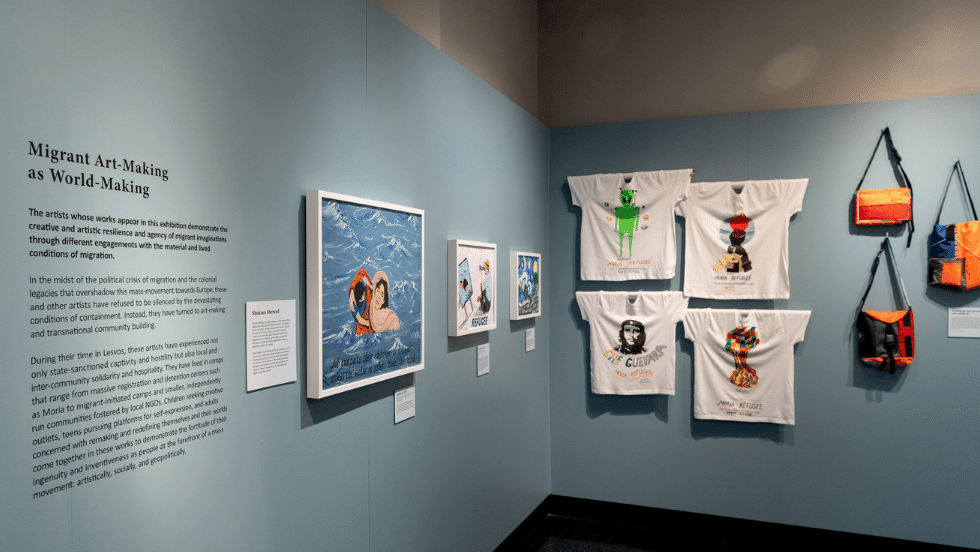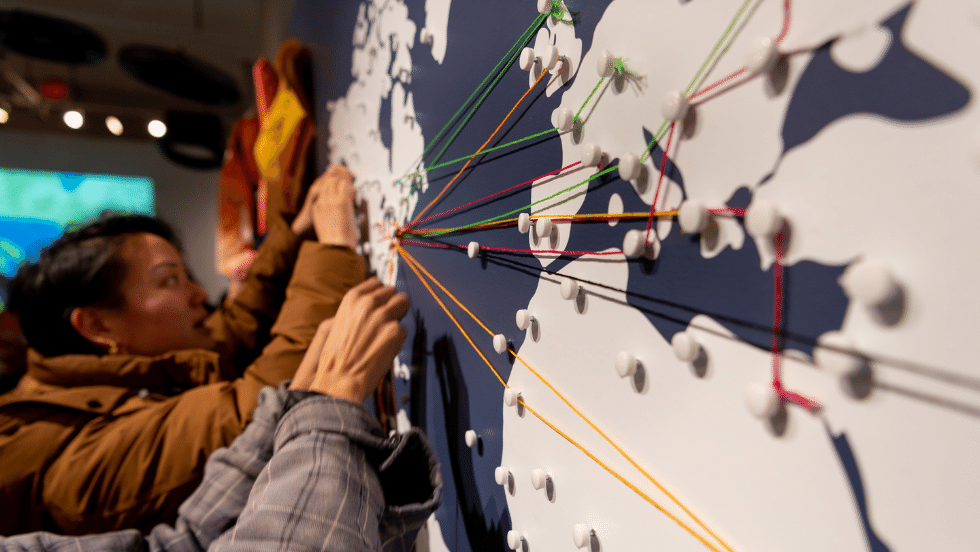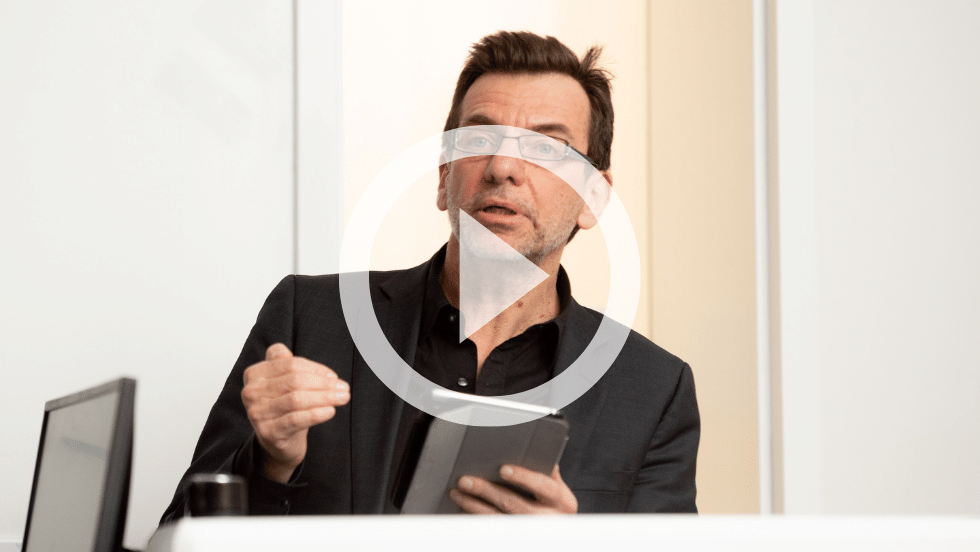Every year, hundreds of thousands of migrants from Syria, Afghanistan, Iraq, Somalia, Congo, and other countries across the Middle East, Africa, and Asia try to cross the Mediterranean Sea, hoping to enter the European Union. These open-water crossings have become the deadliest migratory routes in the world. Since 2014, nearly 1.2 million of these migrants have attempted to reach Europe through the Eastern Mediterranean route, crossing from Turkey to Greece.
Transient Matter: Assemblages of Migration in the Mediterranean brings the realities, perils, and the humanity of migrations and border-crossings to the Haffenreffer Museum through an exhibition of things discarded by migrants who crossed the Aegean to reach Greece, artwork created by migrants in camps and detention centers once there, and photographs and videos produced by the curators. Life vests, inner tubes, and personal items collected between 2016 and 2019 from the seashore on Lesvos (Greece), one of their main points of arrival from Turkey, and from the so-called “Life Vest Cemetery” at the northern part of the island, document the realities of this perilous journey at a human scale. Artwork made by migrants working in solidarity initiatives and in registration and detention centers, such as the Moria Camp, showcase their strategies for recycling and upcycling objects into artworks and items sold to fund journeys forward and convey messages of solidarity.
Transient Matter asks us to reflect on these physical traces of border crossings, paying special attention to the “small things” left behind: life vests, blankets, banners, and personal belongings that migrated with people across borders. It examines the agency of migrants through the art and objects they create and transform. The exhibition thus addresses the whole process of border crossing, from the on-the-ground perspective of migrants and volunteers to the institutional views of solidarity networks and state institutions, confronting issues of identity, nationhood, borders, and histories of colonialism. It foregrounds both the agony and pain of displacement as well as the resilience, determination, and inventiveness of the new nomads of our age.
Curated by Yannis Hamilakis, L. Darcy Hackley, Sherena Razek, and Ayşe Şanlı. Co-sponsored by the Decolonial Initiative at Brown University.
Content Warning: The content of this exhibition may be emotionally stressful or upsetting for some visitors, as it includes mentions of war and violence, political, religious, or gender-based persecution, racism, loss, and death.
